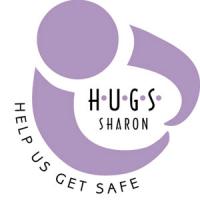Domestic Violence
Domestic Violence or family violence is the abuse of power or control. It is behavior used by one person to control another through force or threats. A batterer makes a choice to strike, hit, kick, punch or threaten the victim.
Domestic violence includes physical and sexual attacks and threats. These violent acts are criminal and the batterer can be prosecuted for committing them. The acts are a means of controlling the victim's thoughts, feelings and behavior. The violence does not lessen over time. The threats and /or beatings generally happen more often with time, last longer and cause greater physical injuries.
Emotional abuse and insulting words are almost always part of the abuse pattern, but are not considered criminal acts. The wounds from these injuries, however, may be more difficult to heal.
Domestic violence is not caused by or provoked by the actions or inaction's of the victim. Domestic violence is not directly caused by alcohol or drug abuse, depression, lack of money, lack of a job, mental illness or abuse as a child. However, existing problems often create additional stress in a relationship and may increase the risk of violence. Many abusers blame the victim or other things for their violent acts and do not take responsibility for the abusive behavior. There is never an excuse for violence.
For more information about Domestic Violence you can also visit these websites:
 |  |
- Your Risk of Harm -
Statistically, the most dangerous time for victim is when leaving the batterer. The abuser may feel he is losing control and become dangerously angry. Take steps to protect yourself from abuse or punishment from your abuser. Please trust your instincts. If you are afraid that something may happen, take your feelings seriously and protect yourself. You know your situation better than anyone else.
- Suggestions for Protection -
Develop a safety plan that includes an escape plan for you and your children should a violent incident occur. During an incident, try to move away from an area or room where access to weapons might increase your risk, such as the kitchen, or where you can be trapped or easily injured.
Call the police or leave the house as soon as possible after an abusive incident. The police will respond and stay with you until you are safe or in a safe place. The police will also help you seek medical treatment, if needed. If you feel you may be in danger, dial the police number and hang up before it rings, so that the redial button will automatically call the police if you need them quickly.
Be alert when leaving the courthouse. If you have any reason to believe your abuser may be waiting for you, please ask someone in the District Attorney's Office or Court Advocate to help. A police officer or a court officer may be able to escort you to your car.
Guns or weapons will be ordered turned over to the police by the judge, along with any license to carry the guns and firearms identification card. Inform the police of any guns/weapons the abuser may keep in the house.
Consider changing the locks on your home. The judge can order the abuser to turn over the keys to your home and/or your car. Keep an extra set of keys in a safe place.
Inform your neighbors if a 209A order is in place. Encourage them to call the police if they see or suspect that something is wrong.
Make copies of important papers and keep them in a safe place. Make a list of the things you need to take with you (birth/medical records, marriage license, check/ bank books, credit cards, medications).
Keep emergency money and extra clothes for yourself and your children in a safe place or with someone you trust. Include a few toys and favorite things for the children.
Keep the victim's service agency number handy for emergency shelter and for support groups; you do not have to leave the abuser or have a 209A Order to attend the support groups. Information and support in making decisions are important.
Get Medical attention as you may be injured much more seriously than you realize. Go to a hospital emergency room or your private doctor as soon as possible for treatment. Ask for a copy of the treatment record.
Have pictures taken of your injuries and bruises at the hospital, police department, shelter or District Attorney's Office.
Frequent Questions about Domestic Violence
Any further questions should be directed to Sharon Police Department's Domestic Violence Officer - Harriet Reichert (781) 784-3535